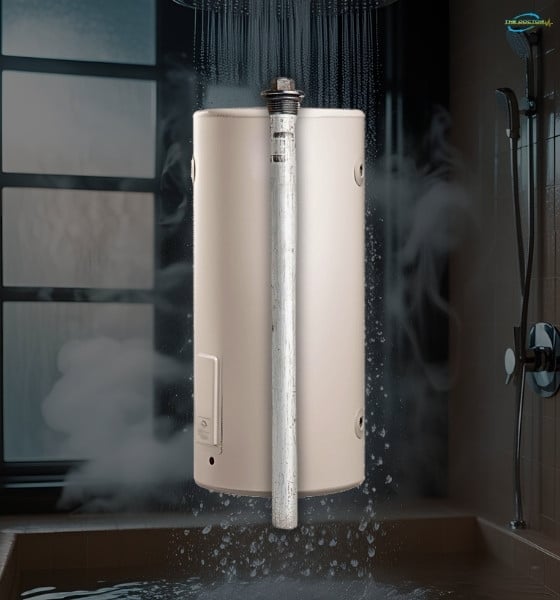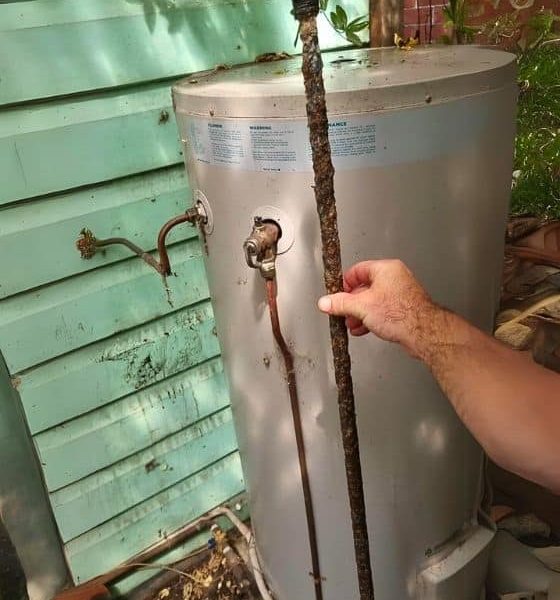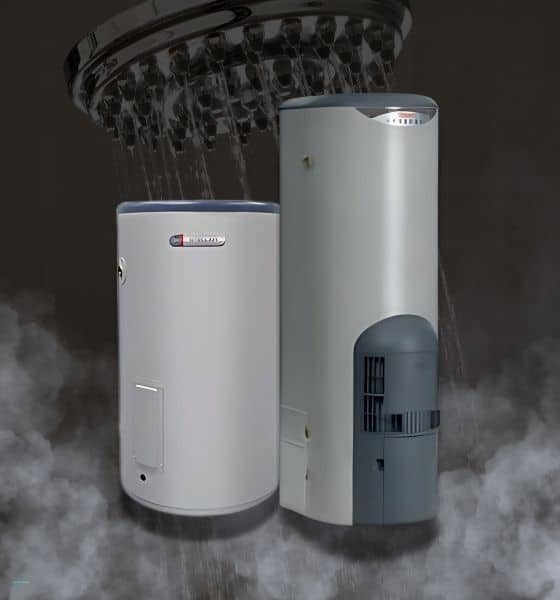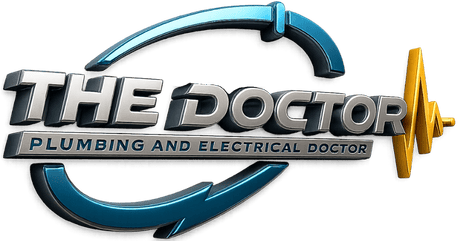What is a Hot Water Anode?
Your hot water system might not get much attention, but it’s one of the hardest-working appliances in your home. Day in, day out, it gives you warm showers, clean dishes, and comfy laundry cycles—all without complaint. But hidden inside that tank is a small part doing some heavy lifting to protect the whole system: the hot water anode, also known as the sacrificial anode.
As a plumber, I’ve seen my fair share of hot water systems fail years before their time—often because this one simple part was ignored. In this blog, I’ll walk you through what an anode is, what it does, and why it matters to every Aussie household.

What Exactly Is a Hot Water Anode?
A hot water anode is a metal rod—usually made from magnesium, aluminium, or zinc—with a steel core. It’s installed at the top of your hot water tank and quietly sacrifices itself to protect the tank from rust and corrosion. That’s why it’s called a sacrificial anode.
The science behind it? A process called electrolysis. Simply put, the anode attracts all the nasties in your water that would otherwise attack your tank. The anode corrodes instead of your tank’s steel lining—so your system stays intact and running longer.
It’s the same principle used to protect ships, barges, and other metal equipment exposed to water. Your tank might not be crossing the Pacific, but the risk of corrosion is real—and just as damaging over time.

Why Replacing the Anode Is So Important
Your hot water system has an average lifespan of about 10 years. But if you replace the anode every 3–4 years, you could easily stretch that out—and avoid an unexpected breakdown (or worse, a flood in your laundry).
Here’s the thing: once the anode is completely corroded, it can no longer protect your tank. At that point, corrosion starts eating away at the tank itself, often silently, until the damage is done. And by then, you’re usually looking at a full replacement.
Unfortunately, many Aussie homeowners don’t even know what an anode is, let alone when to replace it. That’s why we recommend asking your plumber to inspect it during routine maintenance or any time they’re on site. It’s a quick check that could save you thousands.

What Types of Water Heaters Have Anodes?
Most electric and gas storage water heaters (especially non-stainless steel models) are fitted with sacrificial anodes. If you’ve got a stainless steel tank, you’re in luck—they’re more corrosion-resistant and often don’t need an anode. But for the rest of us, regular anode replacement is a must.
How Often Should You Check the Anode?
As a general rule, get your water heater checked every 5 years, or sooner if you live in areas with hard or corrosive water. If your water has a strong mineral content or a bit of a “metallic” taste, that’s a sign your anode may be working overtime—and wearing out faster.
The worst part? Hot water systems tend to give out at the most inconvenient times—like mid-winter or when you’re away from home. And trust me, coming back to a flooded garage or cold showers isn’t anyone’s idea of fun.
Call a Local Plumber You Can Trust
If you’re in Canberra, Newcastle, Hunter Valley, Lake Macquarie, Central Coast, or Port Stephens, give us a bell at 131091. We’re available 24/7 for all things hot water—whether it’s a quick anode check or a full hot water system replacement.
At The Plumbing and Electrical Doctor, we’re here to make sure your home runs smoothly—no surprises, no cold showers.
Final Word: Don’t Ignore the Anode
It might be small, but the sacrificial anode is a key player in keeping your hot water system healthy. By understanding what it does and replacing it on time, you can dodge expensive repairs, extend your system’s life, and enjoy reliable hot water year-round.
So, next time your plumber stops by, ask the simple question:
“Mate, can you check the anode in my hot water tank?”
That little check could save you big bucks down the track.
Want more tips on looking after your home’s plumbing and electrics? Check out our blog or get in touch—we’re always happy to help.
THE DOCTOR GETS IT DONE

